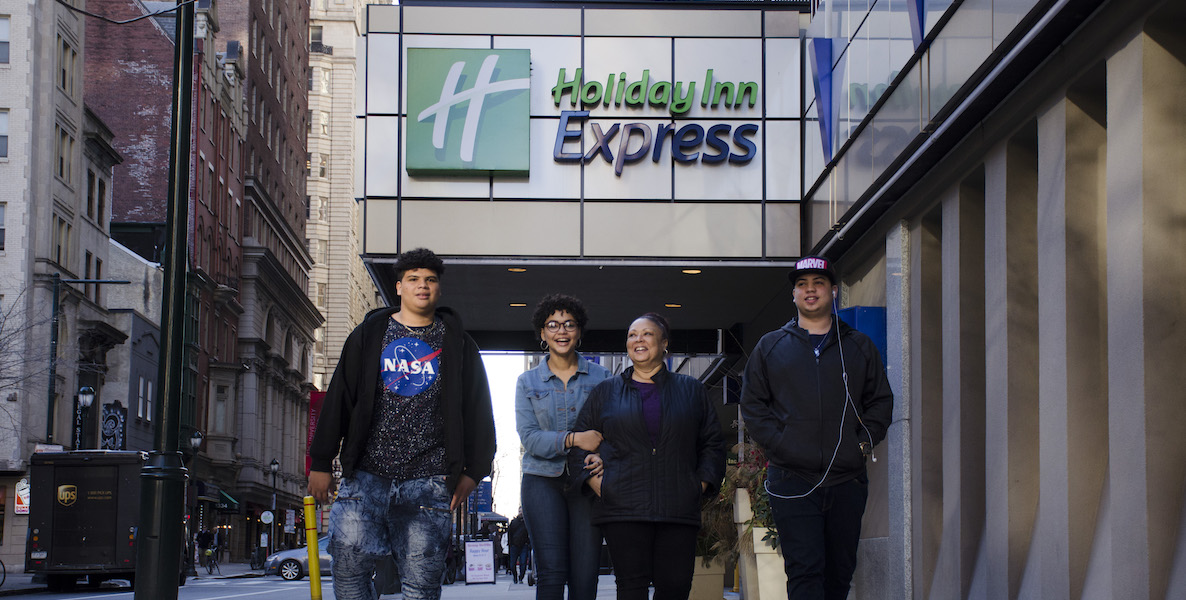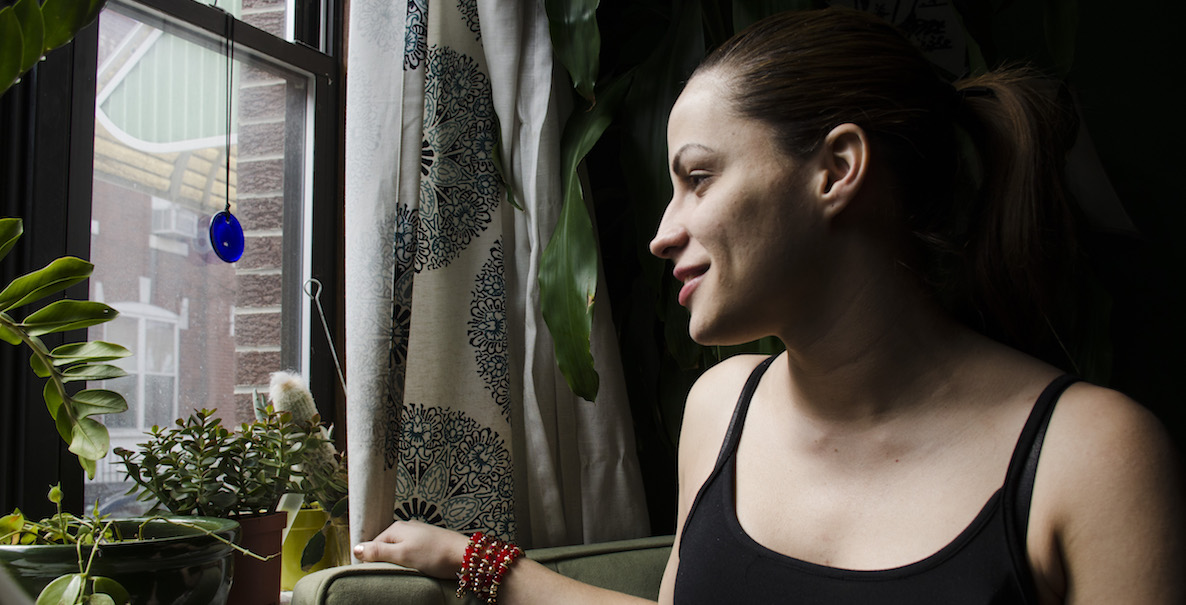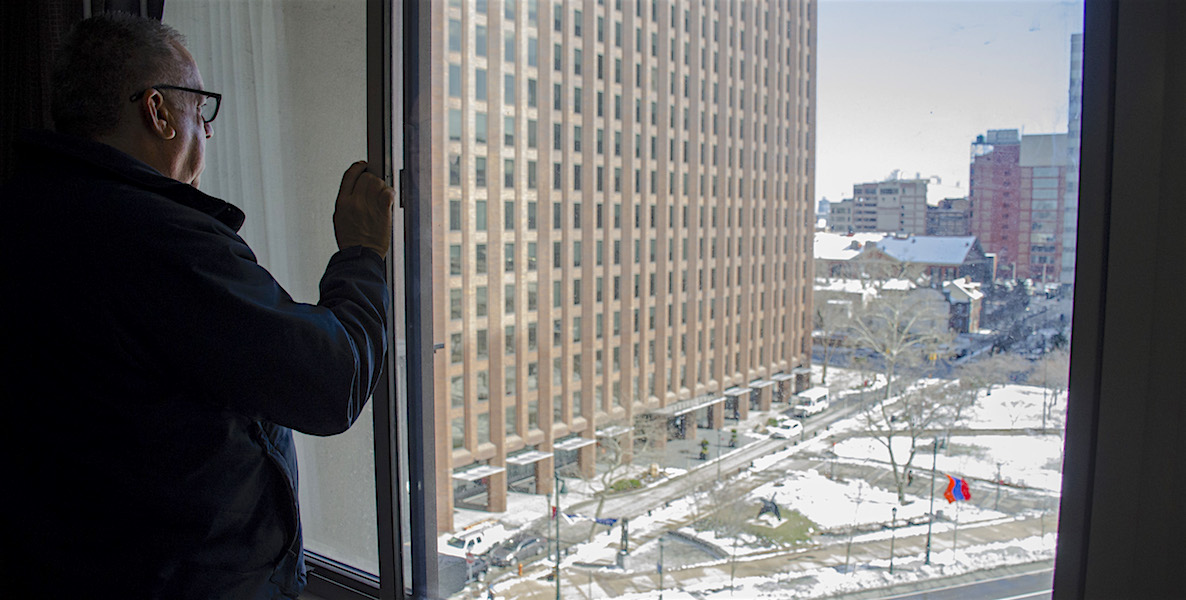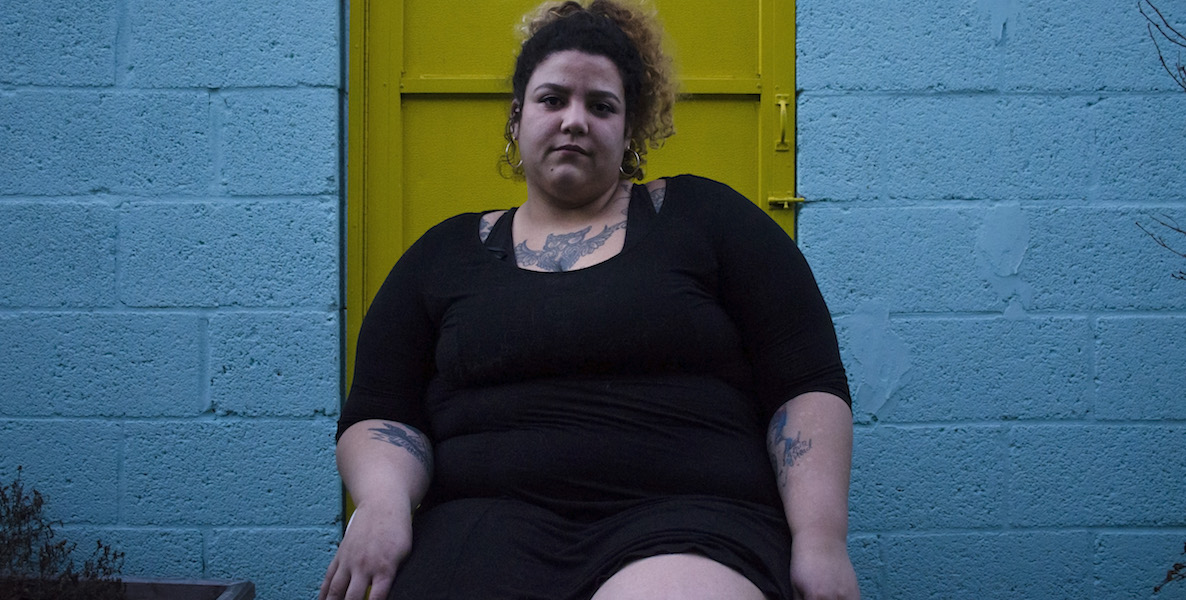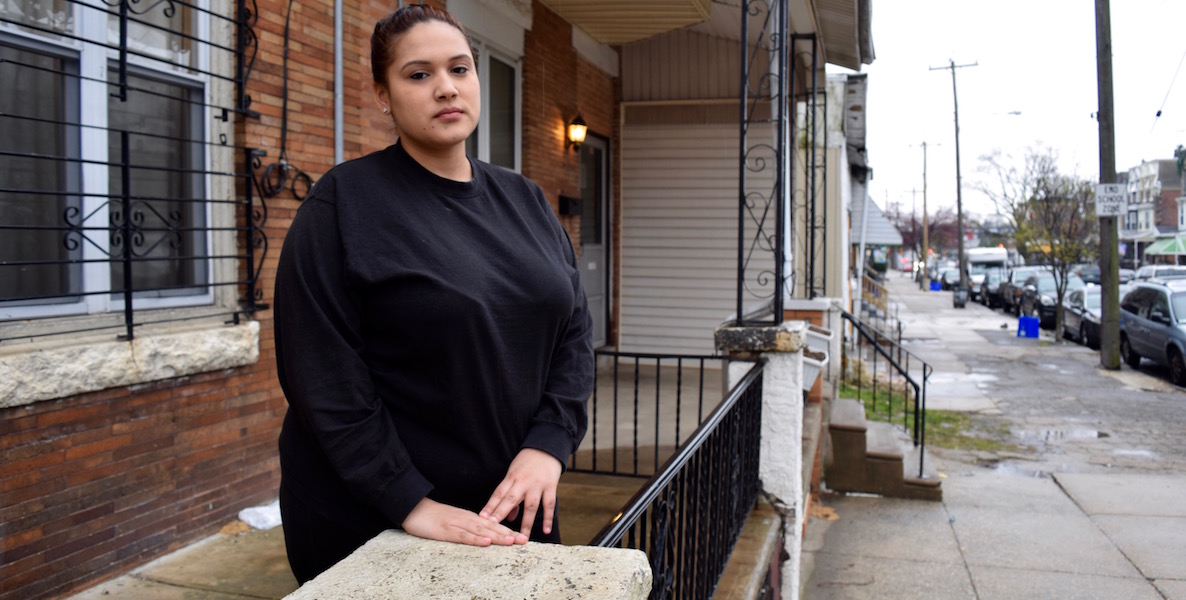When Melanie García’s children hear the thump of rainfall on the windows of their temporary home in Philadelphia, they ask their mother: “Mama, is that Hurricane Maria?”
Melanie, 25, grew up zig zagging between Philadelphia and Puerto Rico. Born on the island, she moved to the city at 5 years old and came back to the island at 13. Since then, Melanie hadn’t left Santa Isabel, a coastal southern municipality of 22,000 people.

Prefer the audio version of this story? Listen to this article on CitizenCast below:

Like her three boys—aged 3,4, and 5—feel with the storms in their new city, Melanie sometimes feels like the circumstances of her two different geographies collide. She came to Philadelphia to begin anew, feeling fortunate that she had relatives and past experience here. But she comes to the city as a hurricane evacuee, whose life was uprooted in a matter of hours and with little choice in the matter.
“What has given me the most stress since relocating,” Melanie declares, “is FEMA. They have made my life impossible.”
“That’s why the transition was so hard,” Melanie says. “I was accustomed to my life there. I loved Puerto Rico.” Back in Puerto Rico, she lived from paycheck to paycheck, but she provided for her family as a cook in one of her town’s restaurants. She enjoyed the rhythm of Santa Isabel, and she knew how to give her family a good quality of life.
Like the over 100,000 Puerto Ricans who have escaped to the United States since Hurricane Maria, Melanie’s fate was decided when the unexpected cyclone devastated the island. Santa Isabel, outside of the metropolitan area, was ravaged. She had weathered the storm, along with her family, at her grandmother’s house. When they came back, it was to the realization that they had lost all their belongings due to flooding. “I still have no idea how Maria didn’t take our home,” Melanie says of their former house constructed from wood and zinc.
![]() By the time the electricity came back in November—7 weeks after the storm—Melanie, her husband, and her three children were a week away from boarding a plane to Philadelphia. By then, they still did not have water in their home. “If you had any idea of the maneuvers I had to do to get water in my house. We had to go to other towns just to find some,” Melanie says.
By the time the electricity came back in November—7 weeks after the storm—Melanie, her husband, and her three children were a week away from boarding a plane to Philadelphia. By then, they still did not have water in their home. “If you had any idea of the maneuvers I had to do to get water in my house. We had to go to other towns just to find some,” Melanie says.
Melanie’s mother paid and arranged for her daughter and her family to have an apartment in Philly as soon as they arrived. However, when they made it to their new flat, the landlord turned them away and refunded their money: No young children were allowed in the building, and Melanie and her husband had three of them.
“At that point,” Maria says, “my mother told me: ‘Tú no te vas a quedar en la calle, tranquila.’” You aren’t going to be left on the streets. So Melanie crammed her family into the two bedroom apartment where her mother and her husband, her brother, and her uncle were already staying. “My brother and my uncle also came to the city after the storm. We were all figuring out where to go from there. All five of us were sleeping in the living room,” Melanie says, sharing in an experience of cramming entire families into small living spaces that Puerto Rican evacuees have become all too familiar with.
“Even speaking English, even knowing the city better than most people, I feel lost,” Melanie says. Back home in Puerto Rico, she knew where to go if her children needed medical assistance. She knew how to enroll them in school, and she was familiar with the world around her. Philadelphia, as an adult, is a new experience.
Melanie began to look for housing via the programs that the city and the federal government offered to hurricane Maria evacuees. Although her family was willing to help, she did not want to overstretch their resources or space. Unfortunately, Melanie has not found the support her family needs in the structures that are in place to assist the displaced Philly Ricans. “What has given me the most stress since relocating,” Melanie declares, “is FEMA. They have made my life impossible.”
After fighting for a spot, Melanie’s family was placed in a hotel in Center City. However, they were evicted after a month and a half without much notice. According to the federal agency, Melanie’s house in Puerto Rico had passed inspection, and it was in habitable condition. However, “the landlord of my former residency had given the house to some of her relatives who had lost everything during the hurricane. We couldn’t go back because the house was occupied,” Melanie explains.
FEMA went as far as closing her case, declaring that Melanie had put in a petition to do so. However, she fought to open it again, using a letter that her former landlord had written declaring the house was in use by other people. “FEMA closed the doors on us in an incredible manner,” she says. “After kicking us out of the hotel, they told us to look for assistance with the Red Cross and with the Salvation Army, but they didn’t help us either.”
![]() Although FEMA approved Melanie’s family to stay in a hotel, she has opted to not go back to one of their sponsored rooms. “For what? So we are sent packing again shortly after?” she says. Instead, they are alternating between relatives’ homes. She is in the process of applying for rental assistance money, but has yet to hear back.
Although FEMA approved Melanie’s family to stay in a hotel, she has opted to not go back to one of their sponsored rooms. “For what? So we are sent packing again shortly after?” she says. Instead, they are alternating between relatives’ homes. She is in the process of applying for rental assistance money, but has yet to hear back.
Melanie’s husband found a maintenance job at a Walmart in January, and his income has been helping the family get by. Melanie, on the other hand, is in a difficult position. Since she doesn’t have access to transportation or anyone to watch after her kids, she has to stay back and take care of her three boys while looking for work. She plans to enroll them in pre-K and kindergarten next year, and has even found schools for her hearing-impaired child, for whom she is exploring a cochlear implant operation with his new pediatrician. However, she worries about where they will stay during the day once she is working full-time, and hopes that she can rely on government-sponsored day care.
But “even speaking English, even knowing the city better than most people, I feel lost,” Melanie says. Back home in Puerto Rico, she knew where to go if her children needed medical assistance. She knew how to enroll them in school, and she was familiar with the world around her. Philadelphia, as an adult, is a new experience.
A month ago, Melanie went to the press conference that Puerto Rican activists, community leaders, evacuees, and allies, organized. She was hopeful about the fact that the city government and other organizations declared that they would step up in the face of this crisis. However, she has become much more cynical after examining their track record since the action. “They talk and talk and talk,” she says, “but no one is doing anything.”
Photo by Syra Ortiz-Blanes


